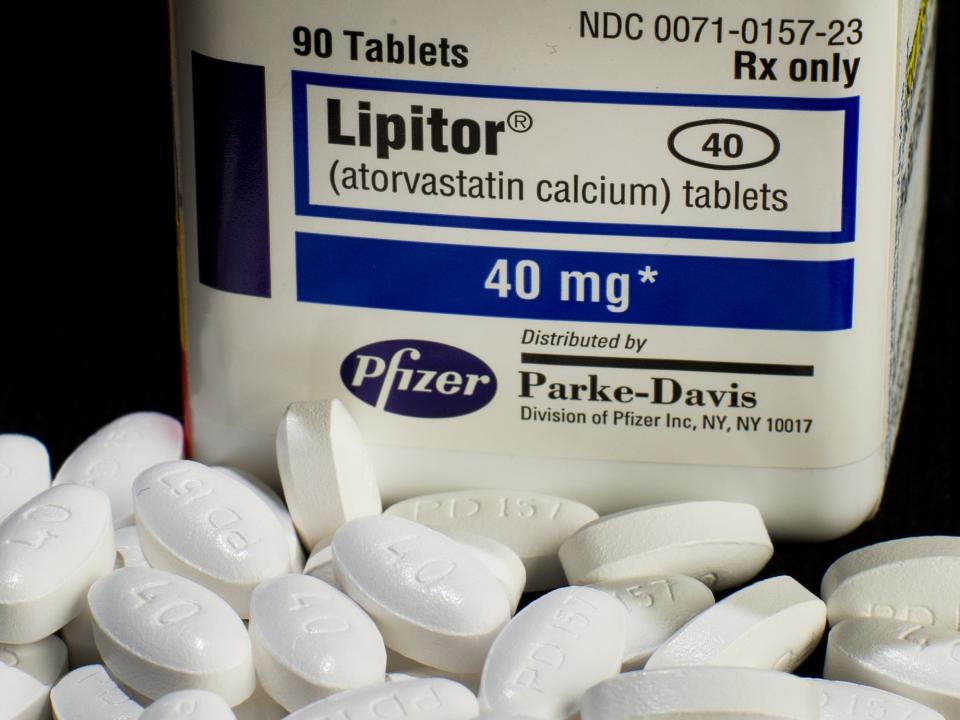Statins found to reduce risk of cancer among heart failure patients

Prescribing statin drugs to patients with heart failure can lower their risk of both developing and dying from cancer, according to a new study, which assessed results over a four-year follow-up period.
The research – published today in the European Heart Journal – found that compared with non-statin users, those taking the medicines had a 16 per cent less chance of getting cancer. Meanwhile, a statin user’s likelihood of dying from cancer was reduced by 26 per cent.
Previous research has shown that a large number of heart failure patients go on to develop cancer, which experts have put down to the condition – which is defined by the NHS as a heart unable to pump blood around the body properly – being cancer-causing via shared pathways such as inflammation or genetic factors.
However, this observational study of over 87,000 people in Hong Kong is the largest of its kind to investigate the direct links between statin use and the associated risks of developing and dying from cancer for heart failure patients.
Statins, known as HMG-CoA reductase inhibitors, are a class of lipid-lowering medications which reduce illness and mortality in people at risk of contracting cardiovascular disease. They are also commonly used as cholesterol-lowering drugs to treat patients with high cholesterol.
Researchers discovered previously unknown variables in statins’ potential, such as how long they are taken can significantly increase their chances of stopping cancer developing.
If heart failure patients remained on statins for four and six years, their risk reduced by 18 per cent, and if they took them for six or more years it reduced by 22 per cent, according to the paper.
Similarly, the risk of dying from cancer reduced by 33 per cent and 39 per cent if patients remained on statins for four to six years and for six or more years respectively.
Dr Kai-Hang Yiu, from The University of Hong Kong, who led the study, analysed data from 87,102 people in Hong Kong who were admitted to hospital with heart failure between 2003 and 2015.
In collaboration with Professor Carolyn Lam, from the National Heart Centre in Singapore, Dr Yiu followed up with patients until they were diagnosed with cancer, died or until the end of 2018 – whichever came first.
Anyone with a history of cancer, HIV, or if they had taken statins for fewer than 90 days was excluded from the study, leaving 36,176 statin users and 50,926 statin non-users for analysis.
Going a step further than the drug’s success in heart failure patients, scientists found that deaths from any cause were lower in statin users compared with non-users. Ten years after the trial started, for instance, 60.5 per cent (21,886) of statin users had died, while 78.8 per cent (40,130) of non-statin users had.
This means, in the study, statins were found to cause a 38 per cent reduction in deaths from any illness compared to non-users.
A total of 3,863 (4.4 per cent) of patients died from cancer during the follow-up and the most common types of cancer were listed as being bowel, stomach, lung and liver, the researchers noted.
“Heart failure is a growing disease globally and deaths due to other causes unrelated to the heart and blood vessels are of concern,” Dr Yiu said. “Our findings should raise doctors’ awareness of the increasing cancer incidence among heart failure patients and encourage them to pay extra attention to non-cardiovascular-related outcomes.”
But he added: “More randomised trials should be carried out to investigate [statins being used in heart failure patients] further.”
In terms of next steps, Dr Yiu advised world health figures to begin considering “potential strategies” for reducing patients’ risk of developing cancer. “Screening for [it] in heart failure patients” would be a good start, he said.
Read More
Life expectancy falls more drastically in the US in 2020 than in other high income countries
Number of NHS doctors taking early retirement has tripled since 2008

 Yahoo Finance
Yahoo Finance 